In our increasingly digital world, proxies have become essential tools for maintaining privacy, accessing geo-restricted content, and managing multiple online accounts. However, not all proxies are created equal. Two of the most common types are private proxies and shared proxies. But what exactly are these, and how do they differ? Let’s dive into the details and explore how Proxy 302 can enhance your proxy experience.
What are Private Proxies?
Definition and Characteristics
A private proxy, also known as a dedicated proxy, is an IP address that is exclusively assigned to a single user or entity. This exclusivity means that the resources and bandwidth of the proxy are not shared with anyone else, ensuring optimal performance and speed.
Key Characteristics:
- Exclusive Use: Only one user has access to the IP address, minimizing the risk of IP bans due to misuse by others.
- High Performance: With no sharing of bandwidth, users can enjoy faster and more reliable connections.
- Enhanced Security and Privacy: The exclusive nature of private proxies provides a higher level of security and anonymity.
Use Cases for Private Proxies
Private proxies are ideal for tasks that require high levels of security and performance. Here are some common applications:
- Secure Web Browsing: Protect your online identity and data from prying eyes.
- Data Scraping: Gather data from websites efficiently without being blocked.
- Social Media Management: Manage multiple accounts without the risk of being flagged or banned.
What are Shared Proxies?
Definition and Characteristics
Shared proxies, on the other hand, are IP addresses used by multiple users at the same time. This shared nature makes them more cost-effective but can also lead to slower speeds and higher risks.
Key Characteristics:
- Cost-Effective: Sharing the proxy with other users reduces costs, making it an affordable option.
- Variable Performance: Bandwidth is divided among users, which can result in slower speeds.
- Higher Risk of IP Bans: If one user engages in suspicious activities, it can affect all users sharing the proxy.
Use Cases for Shared Proxies
Shared proxies are suitable for less intensive tasks where cost savings are a priority:
- General Browsing: Access the internet anonymously without needing high speed.
- Accessing Geo-Restricted Content: Bypass regional restrictions on content.
- Basic Online Tasks: Perform simple tasks that don’t require high performance or security.
Key Differences Between Private and Shared Proxies
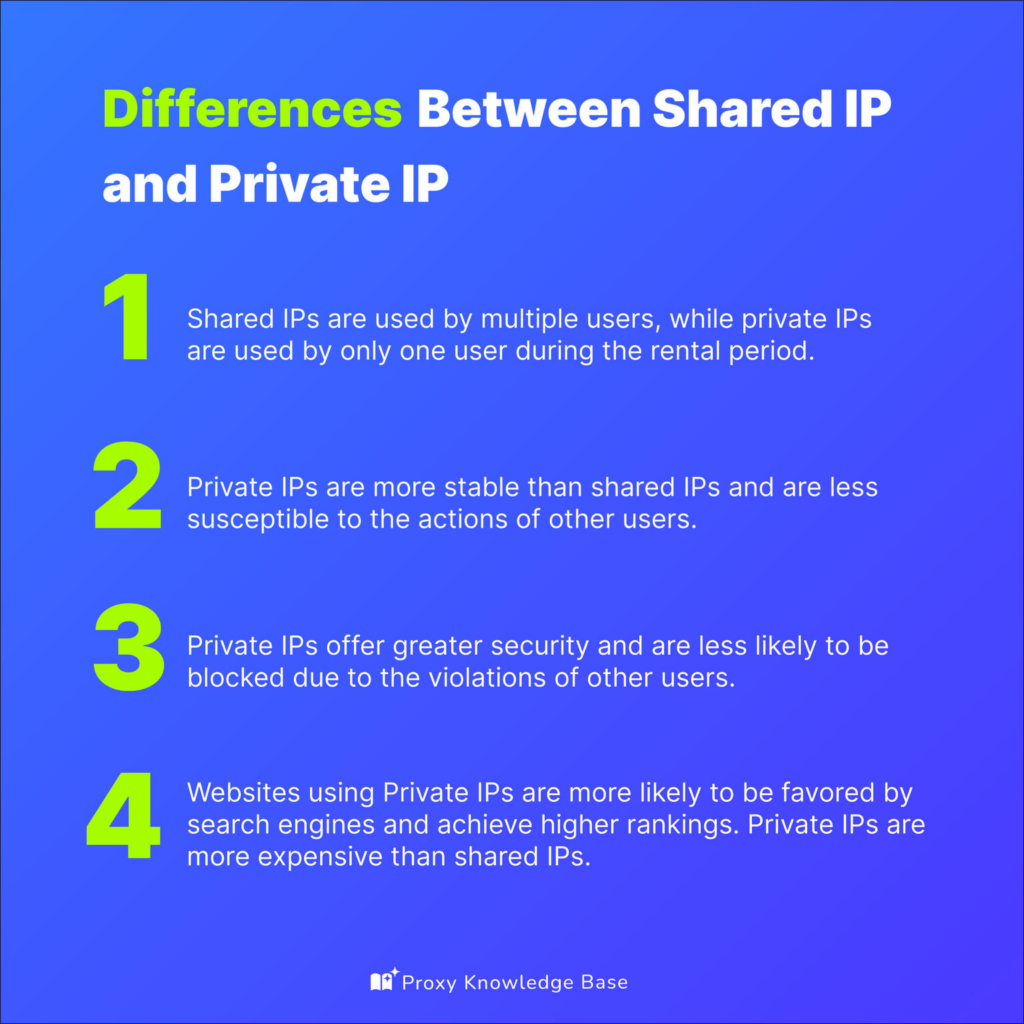

| Aspect | Private Proxies | Shared Proxies |
|---|---|---|
| Performance and Speed | Generally faster, as the bandwidth is not shared. | May be slower due to bandwidth sharing among users. |
| Security and Privacy | Higher security as the IP is not shared with others. | Lower security due to multiple users sharing the same IP. |
| Cost | More expensive due to exclusivity. | More affordable, as costs are distributed among users. |
| Risk of IP Bans | Lower risk since activities are controlled by one user. | Higher risk if another user engages in illicit activities. |
Choosing the Right Proxy for Your Needs
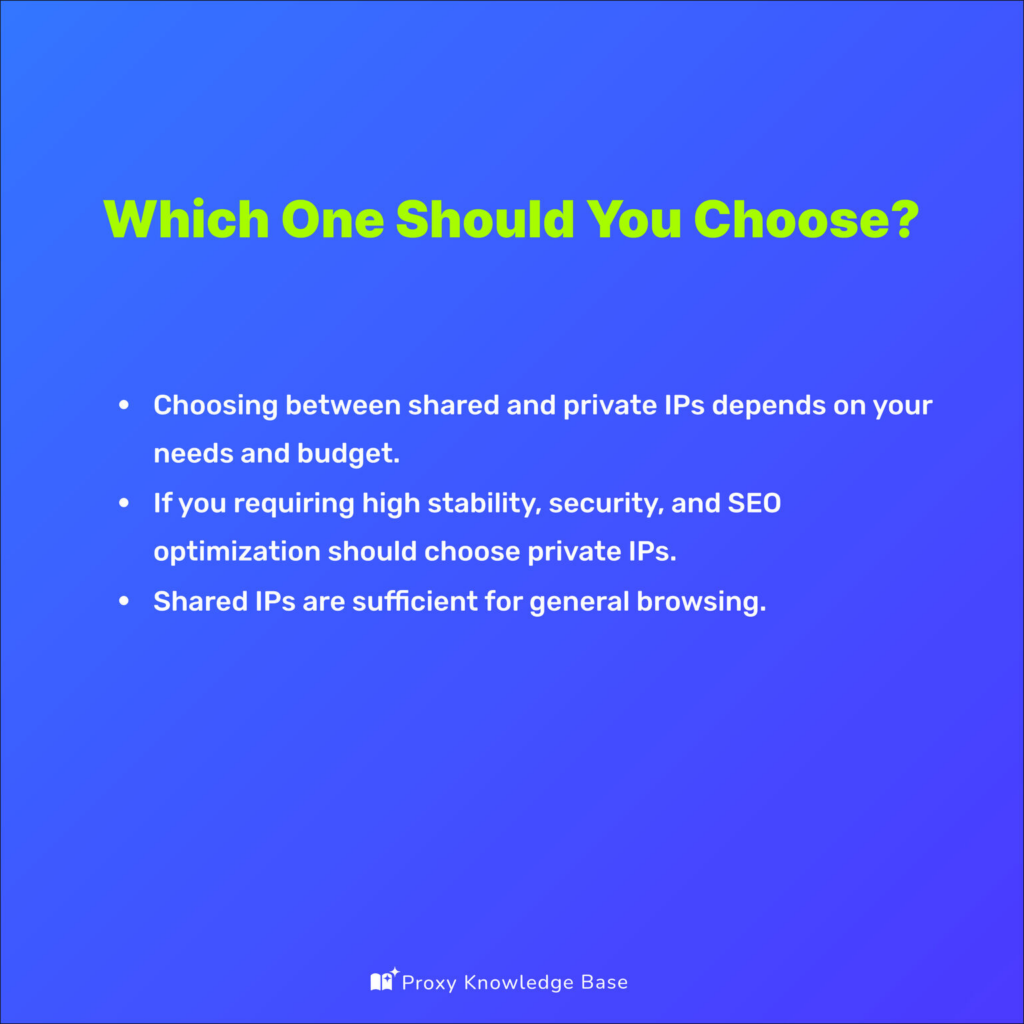
When deciding between private and shared proxies, consider the following factors:

- Budget Constraints: Determine how much you’re willing to spend. Private proxies are more expensive but offer better performance and security.
- Required Level of Security and Privacy: If your tasks involve sensitive data, a private proxy is the safer choice.
- Necessity for Speed and Performance: For tasks that require fast and reliable connections, private proxies are preferable.
How Proxy 302 Stands Out
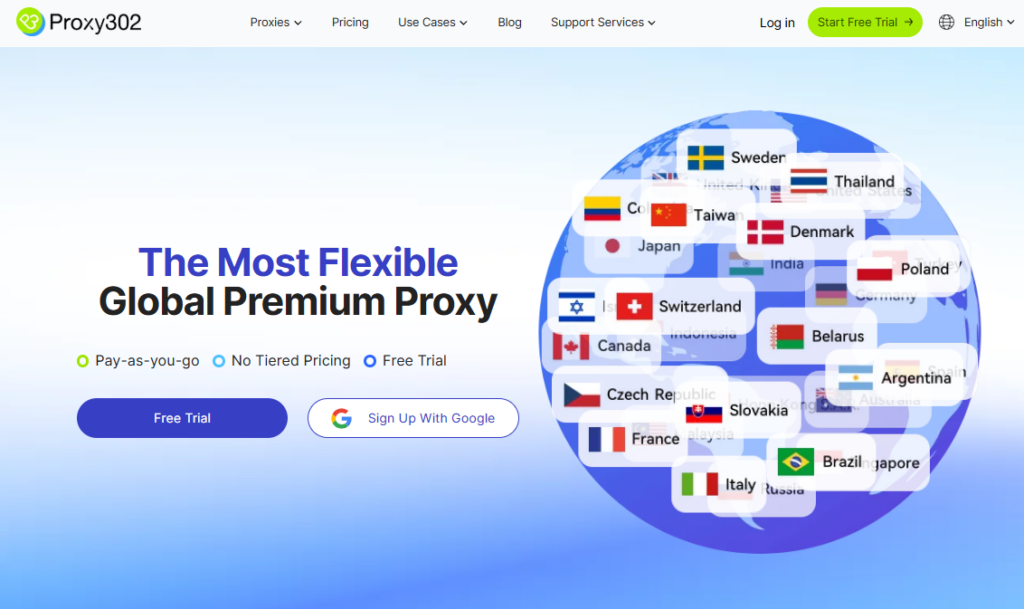
Proxy 302 offers a unique approach to proxies with several standout features:
- Global Reach: With over 65 million IPs globally, Proxy 302 provides extensive coverage, allowing users to access content from virtually anywhere in the world.
- Comprehensive Proxy Types: Proxy 302 supports various proxy types, including city-level targeting with residential proxies, ensuring that users can find the perfect fit for their needs.
- Flexible Pricing Model: Unlike traditional subscription models, Proxy 302 offers a pay-as-you-go system. This means you only pay for what you use, providing flexibility and cost savings.
Practical Cases with Proxy 302
- Market Research: Use Proxy 302’s residential proxies to gather competitive intelligence without revealing your identity.
- SEO Monitoring: Track keyword rankings and analyze search engine results from different locations using Proxy 302’s extensive IP network.
- E-commerce Operations: Manage multiple e-commerce accounts and scrape product data efficiently with Proxy 302’s reliable proxies.
Conclusion
In the debate of private vs shared proxies, the choice ultimately depends on your specific needs and budget. Private proxies offer superior performance and security, making them ideal for demanding tasks. Shared proxies, while more cost-effective, are better suited for less intensive activities.
Experience the flexibility and power of Proxy 302 👉 Start Your Free Trial Now 👈 Enjoy the benefits of pay-as-you-go pricing and access to over 65 million IPs worldwide. Sign up now and discover how Proxy 302 can enhance your online activities.


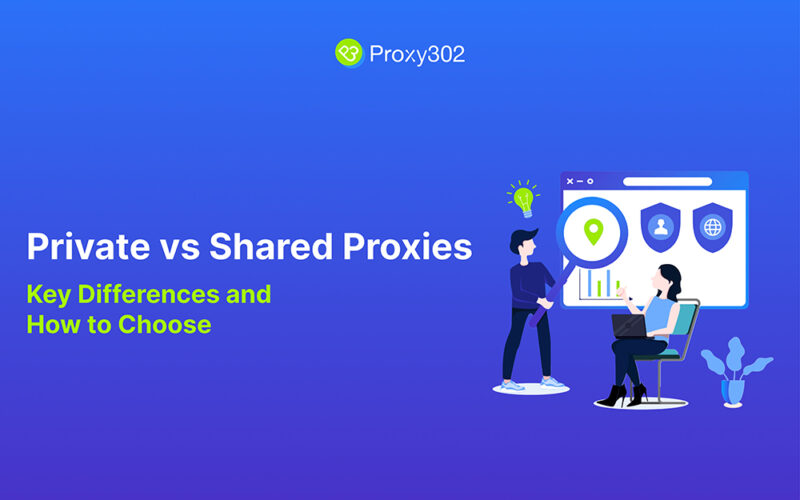
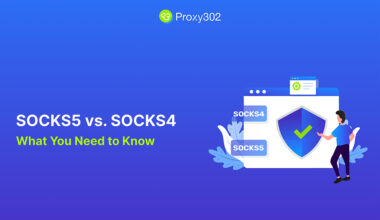

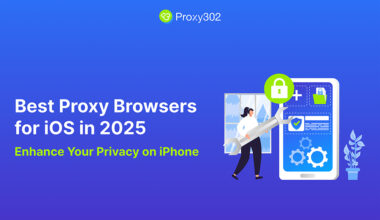
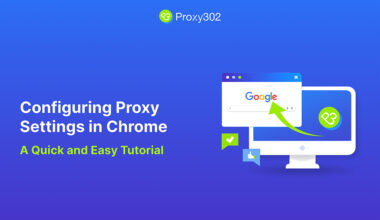
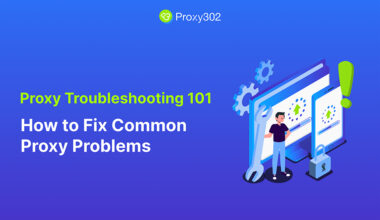

1 comment
I don’t think the title of your article matches the content lol. Just kidding, mainly because I had some doubts after reading the article.